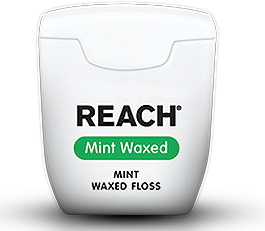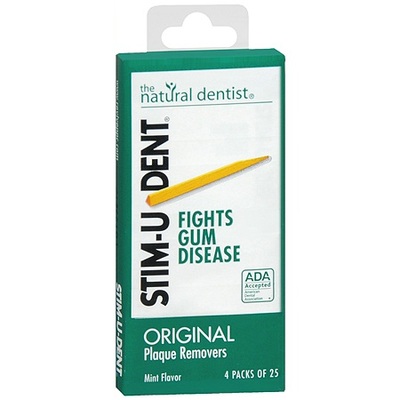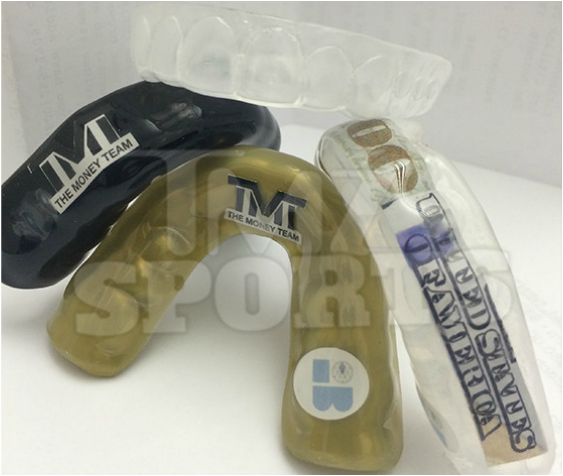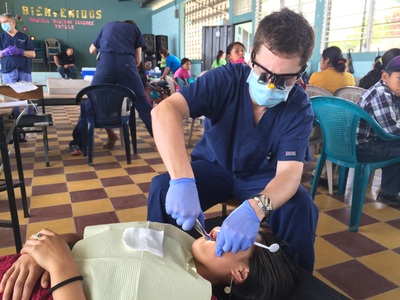The New York Times "Ask Well" section discussed the order of brushing and flossing. Some dentists recommend flossing first because it is less enjoyable and more likely to be skipped. However, if you brush first, floss can guide the fluoride in toothpaste between your teeth. Flossing is important because it removes debris the brush bristles cannot reach- between teeth and under gums. Removing the debris prevents inflammation of the gums (gingivitis). Patients who floss have less gum bleeding on brushing and flossing. As for technique, the American Dental Association recommends guiding the floss along the curve of the gum line at the base of each tooth and up and down between teeth.
HealthDay reported that research published in Dentistry shows that treating gum disease may help reduce symptoms of prostate inflammation. Prostatitis can make urination difficult and mimic symptoms of an enlarged prostate. The link between periodontitis and prostatitis is the increased level of systemic inflammation in periodontal disease. Men who received treatment for gum disease had improved prostate symptoms (21 out of 27). There are also associations between gum disease and premature births, cardiovascular disease, and lung disease.
CNBC posted a press release describing how the American Association of Clinical Endocrinologists believes the dental office is a logical place to be screened for diabetes. Patients tend to visit their dentist more often than their physician so getting screened for diabetes at the dental office is innovative and convenient. The main goal is prevention. There are 29 million Americans with diabetes, of whom 8.1 million are undiagnosed. While diabetes screening in the dental office is not currently mainstream, it may soon become part of the comprehensive care provided by the inter-professional healthcare team of the 21st century.
The recent boxing match between Floyd Mayweather and Manny Pacquiao reminds us of the importance of wearing mouthguards during contact sports. Mayweather is a stylish guy with millions of dollars worth of cars and the finest clothes. For his mouthguard, he chose Dr. Lee Gause as his dentist. Dr. Gause also makes the mouthguards for NBA professional Amar'e Stoudemire and NFL player Josh Gordon. Mayweather is a perfectionist, and for the "fight of the century" he commissioned the fabrication of 10 mouthguards for $25,000, including one with a $100 bill baked in and one with gold foil. Dr. Gause says "it's about style but also sports psychology, which is a huge part of athletic performance. "
http://www.nytimes.com/2015/05/02/fashion/floyd-mayweather-jr-fashion-style.html?_r=0 Dr. Pearl's son, Scott, is a third year dental student at UConn School of Dental Medicine. He recently spent a week in Honduras in remote villages providing dental care to Hondurans, many of whom have never seen a dentist before. The experience was fantastic and rewarding. Extractions, fillings, and stainless steel crowns were performed. We congratulate him on a job well done.
The word "floss" comes from the french soie floche, meaning floss silk. The first recorded use of flossing dates to a New Orleans dentist named Levi Spear Parmley in 1851. He recommended running a wax silk thread between the teeth "to dislodge that irritating matter which no brush can remove and which is the real source of disease.” He thought it was the single most important part of dental home care. The first unwaxed silk floss was commerically produced in 1882. Johnson & Johnson received the first patent for silk floss in 1898 and it was made from the same material as surgical stitches. Nylon and cotton were both used throughout the years.
The material chosen isn't as important as getting the patient to actually use it. Floss picks and water picks have also become popular in recent years. Did you know that in WWII, 10% of recruits were rejected because of poor oral health? Flossing is a small routine that can make dramatic differences in oral health and total body health. It helps you get to the "roots" of things and puts more bite into your eating! In its list of 10 symptoms of overstress, Prevention Magazine (4/22) reports that a sore mouth or jaw, and bleeding gums may be two such symptoms. A sore jaw can be a sign of teeth grinding. A custom made night guard can protect teeth and prevent headaches. In addition, high stress is related to increased cortisol which can impair the immune system and exacerbate periodontal disease.
http://www.prevention.com/mind-body/emotional-health/silent-signals-youre-stressed April is Oral cancer awareness month. Oral cancer can be treated effectively if caught early. "Oral cancer can affect any area of the mouth, including the lips, gums, the hard or soft palate, cheek lining and tongue. Oral cancer often starts as a small white or red spot or sore somewhere in the mouth and often goes unnoticed until it has spread into another part of the body.Regular dental check-ups, including an examination of the entire mouth, are essential in the early detection of cancerous and pre-cancerous conditions. Knowing the early signs can also increase survival. Early signs include:
Read more: http://www.benzinga.com/pressreleases/15/04/p5412691/for-oral-cancer-awareness-month-california-dental-association-encourage#ixzz3XUHRLBxt US sales of gum have fallen 15% since 2009. According to the American Dental Association "clinical studies have shown that chewing sugarless gum for 20 minutes following meals can help prevent tooth decay." Many new chewing gums have displayed the ADA’s seal of acceptance to widen the product’s appeal.
http://www.bloomberg.com/news/articles/2015-04-09/hershey-wants-to-get-americans-chewing-just-don-t-call-it-gum The Pearl Dental Care team learned the latest standards of care in CPR training and Basic Life Support. Thank you to our great teacher Catherine Collier!We are going to begin a new weekly series of dental tips. Here is the tip of the week featuring a segment on first aid "dos and dont's" at CBS' The Doctors! If a tooth is knocked out, put it in a cup of milk or saliva. The tooth can even be stored under the tongue as long as you don't think it will be swallowed. Make sure not to wash the tooth off. Very importantly- get to our office ASAP! A tooth can often be put back into the socket if it has been out of the mouth for less than an hour.
|
|
Pearl Dental Care
1834 Dixwell Ave Hamden, CT 06514 |








